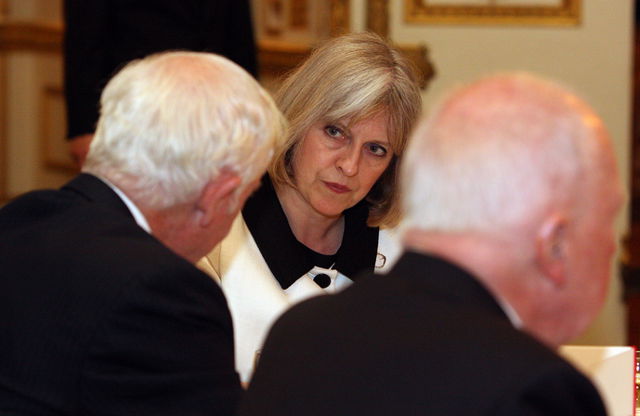This in from the police, in their own words. Ed
While stop and search is undoubtedly an important police power, when it is misused it can be counter-productive. It can be an enormous waste of police time and, when innocent people are stopped and searched for no good reason, it is hugely damaging to the relationship between the police and public.
The voluntary scheme, which was announced by the Home Secretary in April, is designed to contribute to a significant reduction in the overall use of stop and search, deliver better and more intelligence-led stop and search, and improve stop-to-arrest ratios. It will also provide the public with further information on the outcome of searches.
What will be implemented
By the end of October 2014 Hampshire Constabulary will implement the scheme to:
- Increase transparency by recording all outcomes of stop and search and whether there is a connection between the grounds for the search and the outcome.
- Restrict the use of Section 60 “no suspicion” powers. Already used only when necessary, under this scheme, the chief officer (or appointed lead officer for a specific operation) must make the decision whether to authorise the use of such powers. In cases where the chief officer anticipates serious violence, that officer must reasonably believe that violence “will” rather than “may” take place, as it stands now.
- Give members of the public the opportunity to observe stop and search in practice.
- Introduce a community complaints trigger.
43 police forces signed up to scheme
This week the Home Secretary announced that all 43 police forces in England and Wales have signed up to the scheme and 24 will implement the additional data recording and section 60 “no-suspicion” measures from Tuesday, August 26. Forces signed up will have implemented all aspects of the scheme in November.
Home Secretary Theresa May said:
“Nobody wins when stop and search is misused, it can be an enormous waste of police time and damage the relationship between the public and police.
“That is why I am delighted Hampshire Constabulary has committed to reforming their use of stop and search by volunteering for the Best Use of Stop and Search scheme. It will increase transparency, give us a better understanding of how stop and search is actually being used and help local communities hold the police to account for their use of the powers.”
Hampshire Constabulary Chief Constable Andy Marsh said:
“It is important that we do everything possible to build trust and to help our communities to feel safer. That is why, while Hampshire is not a ‘launch’ force for the Stop and Search Scheme, we will be implementing these changes by late October.
“Officers should only use these powers when there is a clearly defined policing need, but we also need to do more to increase public understanding of why and when it is appropriate to use Stop and Search powers and when it is not.”
See the stop and search data
From this week, stop and search data will also be available on data.police.uk. The additional information which forces will capture as a result of the Scheme will be published on this website in due course.
The Home Office has also launched a consultation on revising the Police and Criminal Evidence Act (PACE) Code A. The consultation on the Code, which governs the police’s use of stop and search, will last eight weeks.
Chief Executive of the College of Policing, Chief Constable Alex Marshall, said:
“Stop and search powers are necessary to help us tackle crime and keep people safe but it is clear that they are being misused too often. This can leave resentment in our communities and hinder our ability to prevent crime.
“Every police force in England and Wales has today committed to the best use of stop and search scheme to improve the way we use these important powers. Under this scheme search outcomes will be recorded in more detail so we have a greater understanding of how the powers are being used. Searches which do not require reasonable grounds of suspicion will reduce and communities will have greater powers to question police over their use of stop and search.
“The College of Policing will play our part by reviewing and developing the evidence-base, training and guidance so that police officers at every level in the service are equipped with the right knowledge and skills to conduct effective stop and search. We have already built links with the Equality and Human Rights Commission (EHRC) to look at whether unconscious bias is affecting officers’ use of stop and search.
“There are many areas of good practice where stop and search has reduced, the quality of encounter has gone up and arrest ratios increased. The College will be sharing that across the country so that we see the changes needed to ensure that the communities we serve have confidence in their police officers to use these important powers proportionately, effectively and fairly.”
Image: foreignofficeunder CC BY 2.0





